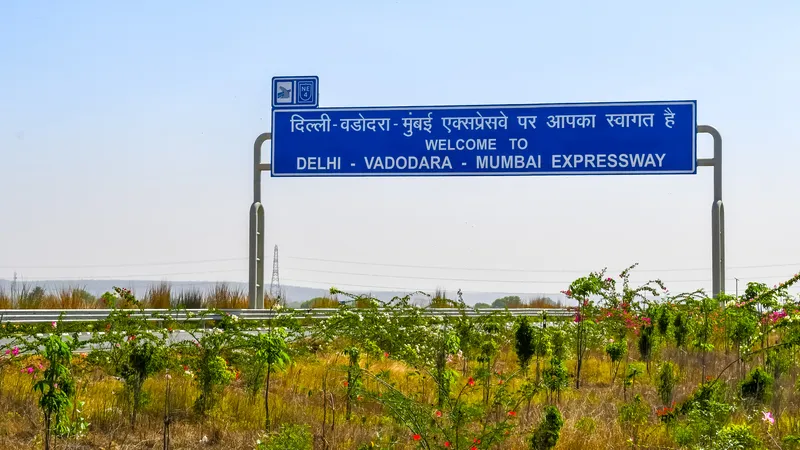
South Korean radar specialist Bitsensing is taking part in an ITS pilot on one of India's most heavily-used highway corridors.
It will work with Indian smart infrastructure firm Ikio Technologies, whose products include smart lighting and CCTV, on the Delhi-Mumbai Expressway for Lucknow Municipal Corporation.
Bitsensing and Ikio signed a Memorandum of Understanding (MoU) at the 2025 Suwon ITS Asia-Pacific Forum.
They will jointly implement a traffic solution combining Bitsensing's flagship Timos sensors, a local edge server and an AI-based analytics server, in a similar way to a deployment in Verona, Italy, which was covered in ITS International's May-June edition.
Timos integrates radar, camera and edge AI to track up to 256 vehicles in real time, across eight lanes.
It also has  AI-based traffic analytics platform TraXight, the system enables advanced monitoring of vehicle presence, average speed, violations, and congestion patterns—empowering smarter traffic control and real-time response.
AI-based traffic analytics platform TraXight, the system enables advanced monitoring of vehicle presence, average speed, violations, and congestion patterns—empowering smarter traffic control and real-time response.
“Over the past several years, we’ve built trust in complex and varied road environments,” said Jae-Eun Lee, CEO at Bitsensing.
“ITS Suwon 2025 provided the perfect stage to formalise our partnership with Ikio Technologies. Together, we’re excited to bring our field-proven sensing and AI capabilities to India—adapting them to meet local needs and collaborating to support the country’s evolving transportation infrastructure.”
Ikio has been expanding into the ITS sector. The firm's CSO Sunil Kumar Mishra says: “Through this MoU, we look forward to introducing advanced, fieldproven ITS technology of Bitsensing for Indian requirements."
Traffic management - and in particular road safety - is a major issue in India. The companies say they plan to expand their collaboration across additional highways and urban regions "in the coming years".
"This collaboration, which also involves manufacturing of ITS solutions and components in India for global markets - on attaining the size and big orders along with customised development - will enable us to deliver innovative, high-performance solutions tailored to India’s unique road environments," adds Mishra.
The Mumbai–New Delhi Expressway and Lucknow/Jodhpur/Ahmedabad City pilot project are expected to be a model deployment, showcasing the ability of radar and AI technologies to reduce congestion, improve safety and support India’s broader smart city and digital infrastructure ambitions.
“India is rapidly scaling its smart mobility infrastructure,” Lee concludes. “We also see great opportunity to collaborate with India’s top-tier research institutions through AI integration, and jointly develop localised ITS solutions that deliver both performance and reliability.”
The MoU signing was attended by key figures including Heo Na-yoon, director of the Digital Road Team at the Ministry of Land, Infrastructure and Transport; Huh Chung-Hoe, chairman of ITS Korea; Akhilesh Srivastav, president of ITS India; and Dr. Shiv Kumar, general director of ITS India.










